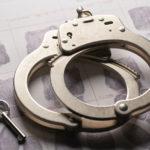COMMUNICATED –
Once a student leaves the security and safety of their home, they undergo many changes upon their arrival in college. For instance, students get more independence and their knowledge expands. This is also the time they transition from adolescence to adulthood.
In addition to these opportunities, many challenges come their way. These include a new environment, increased responsibilities, and starting to establish a support network. What’s more, drugs and alcohol are readily available to college students.
Substances abuse may be a concern for everybody, regardless of the demographic or age group. However, it’s a major concern for college students. That’s because substance abuse is particularly at the highest level among college students. Therefore, the risk for developing an addiction and eventually call drug addict help hotline seeking professional assistance is higher for college students.
Statistics on Drug Abuse among College Students
Addiction onset can occur at different points in the lifespan of a person. But, college students have several risk factors that make them more prone to illicit substance abuse, alcoholism, and prescription drugs’ misuse.
In particular, most students drink alcohol in large quantities while pursuing their college studies. One study has established that two in every five students in college qualify to be heavy drinkers. That means they have drunk 5 or more drinks in one session in the past 2 weeks.
Every year, 37 percent of learners in college use an illicit drug at least once. 19 percent of students in college use an illicit drug but not marijuana. What’s more, college students misuse prescription stimulants. 6.9% of students in college use prescription stimulants for other reasons like study aid, which are not medical.
But, why the high levels of addiction or substance abuse among college students? Here are some of the factors that make college students prone to addictive behaviors.
Decreased Involvement of the Parents
Most students will start to abuse drugs and eventually end up rehab numbers seeking emergency assistance when not closely monitored by parents. Children are unlikely to experience peer pressure influence when there is parental involvement in their daily life. But, college is the time when the monitoring that students had in high school ends. This shows that parental disapproval matters. New space and freedom increase the risk for addictions.
Peer Influence
When students go to college, disapproval from parents might end. However, this is the time when peer influence starts. This can be through the observation of a culture that depicts substance abuse as something cool.
No college student wants to be the odd one out. Therefore, most learners start abusing substances and drinking alcohol because it’s depicted as the campus culture. In addition to being depicted as a norm, different substances are also readily available in the new environment. Thus, learners are offered alcohol and other addictive substances more directly in college than in high school.
The Desire to Experiment
In college, students are required to complete much harder academic work. They also start worrying about their final grades. Worrying about class performance can also lead them to use or abuse non-medical stimulants to enhance their studies. Research has shown that non-medical prescription stimulants use among college students is a high-risk behavior that requires further monitoring and intervention efforts. That’s because it is more prevalent among certain colleges and subgroups of college students.
Stress
College life can be stressful. In addition to academics being harder, relationship and social problems get complex in college. What’s more, some college students have environmental stressors and mental illnesses to deal with. Illicit substances and alcohol are mostly used by students that want to avoid or deal with stress. This is cited as one of the major reasons for using addictive substances by most students. Essentially, drugs and alcohol enable college students to relax. Unfortunately, this leads to a problem that requires them to call drug and alcohol hotlines later on seeking help with addiction.
Sororities and Fraternities
Joining a sorority or fraternity in college makes students more prone to substance addiction. The Greek life culture leads many learners to binge drinking and abuse of different substances.
To Feel Good
Alcohol and drugs produce a euphoria feeling. This is what many people refer to as a “high”. Therefore, college students abuse substances to enjoy this pleasurable sensation. But, other effects can follow or accompany this pleasurable effect, depending on the consumed substance. For instance, a student can experience the feelings of wakefulness and confidence after abusing stimulants. Opioids can induce a relaxed feeling.
Some students can also turn to drugs or alcohol when performing socially, athletically, and mentally becomes a challenge. That’s because these substances might enhance their performance. And, this can make them feel better.
To Fit In
Some students start abusing drugs and alcohol when trying to fit in certain social groups. They do so to impress members of certain groups so that they can accept them. This motivation is common and relevant to young adults that enter new environments that they consider potentially intimidating.
Thousands of learners start using alcohol or drugs across colleges every day. And, whenever a student abuses an addictive substance, it affects their brain. Over time, this substance changes brain functioning and structure. The brain alterations that occur can be short-term or long-term.
And drug abuse by adolescents can be problematic in the future. That’s because their brains are still developing. Thus, the impact of addictive substances can be potentially greater. And, even if a student starts with experimentation, they can end up in addiction. That’s when they start to seek and use the addictive substance compulsively even when negative consequences, like poor performance in college, are obvious. Nevertheless, it’s never too late to call a drug helpline and get professional intervention.
The Bottom Line
Students should know factors that increase their risk of addiction when they join college. They should also consider things that will enable them to avoid addiction. This can include developing healthy and effective study habits, learning stress management skills, making the right friends, and keeping in touch with parents, as well as, role models that don’t abuse alcohol or drugs. That way, they will avoid addictive substances and the need to call addiction help hotline numbers seeking emergency help later in life.








